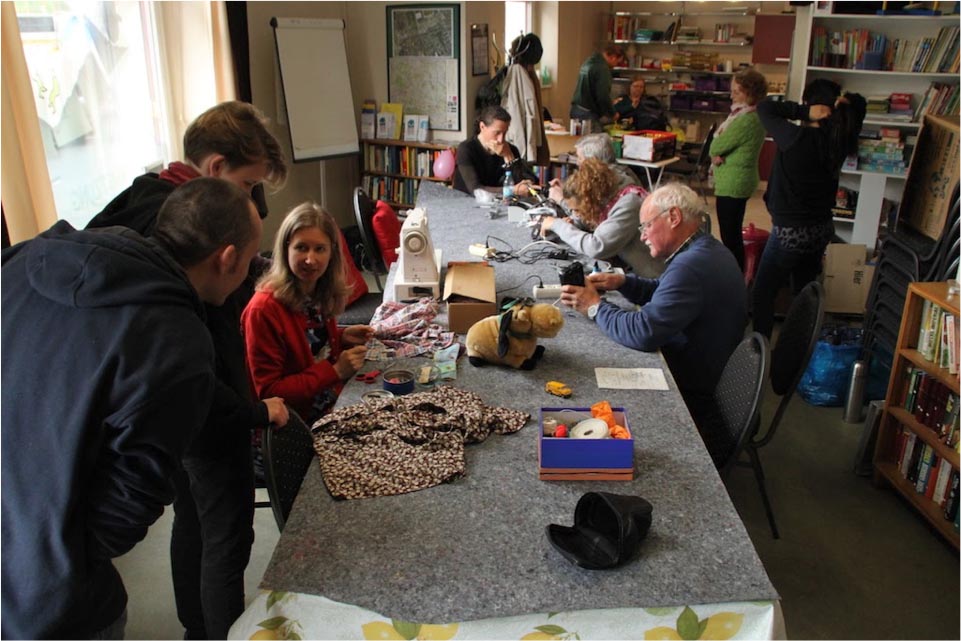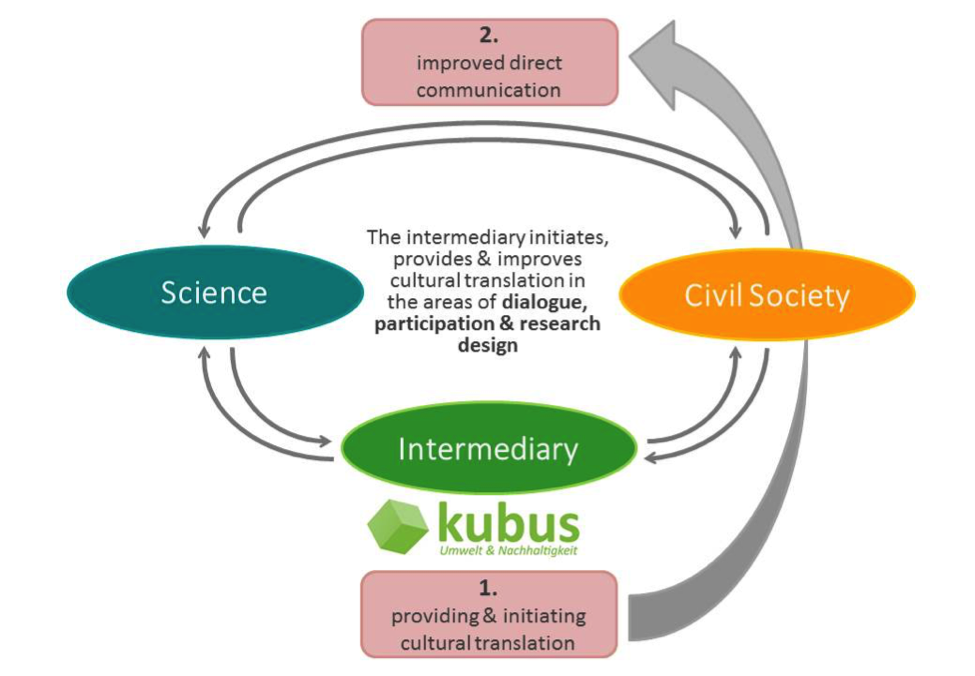Living Lab
Citizens create climate knowledge
An example of co-creational research
In the living lab Bürger*innen schaffen Klimawissen (Citizens Create Climate Knowledge), scientists from the Department of Climatology work together with the kubus science shop of the TU Berlin and committed civil society. Kubus supports the department by mediating and establishing contact with civil society groups, by providing technical expertise and by designing and implementing citizen science formats.
How are urban climate hotspots identified? How does humidity influence particulate matter? The quality of the answers to these questions is crucial for effective climate adaptation in Berlin. In the living lab, the question is explored as to which questions citizens are concerned with in their lives in connection with climate change and what they think should be scientifically investigated. Temperature amplitudes in urban space are noticeable for residents. The project therefore uses the example of the district of Pankow-Niederschönhausen to investigate temperature amplitudes in the context of building development and vegetation structure. Using scientific measurement methods, citizens investigate their perceived temperature differences and subjective impressions and support scientific hypotheses and research questions. The importance of planting – especially the importance of large trees – is the focus. Scientists and citizens check and build a close-meshed network of simple measuring stations in direct cooperation. The focus is on real experiences of everyday life, the effectiveness and experienceability of climatic change. Important urban climate measurement data cannot be obtained without the cooperation of civil society and science. The geographical anchor point is the Schlosspark Niederschönhausen. In the Repair Café, citizens experiment with different types of simple measuring stations, and further types of devices are created DIY. These will be hung up in the Schlosspark, in the neighbouring allotment garden and in the immediate residential environment, and measurement data will be made available online as an open source. The results of the research are discussed controversially in a dialogue with citizens: Is climate change really real? What can we, the citizens, practically do in response to climatic changes in our neighbourhood – for a more pleasant urban climate in our neighbourhood?
This alliance of urban transformation lived out in the living lab connects urban society and the university and will also influence planning priorities.
Thematic approaches:
#Climate Change #CitizenScience #Co-Design
Spatial approaches:
#neighbourhood #park #transport infrastructure
Contact:
TU Berlin (Kubus) – Dipl.-Ing. Gisela Prystav, Dipl.-Vw. Frank Becker

The Repair Café as a place for co-creational climate research. Photo: kubus

As an intermediary, the science shop kubus supports co-creational participatory research and citizen science. Graphic: kubus

Leave A Comment
You must be logged in to post a comment.